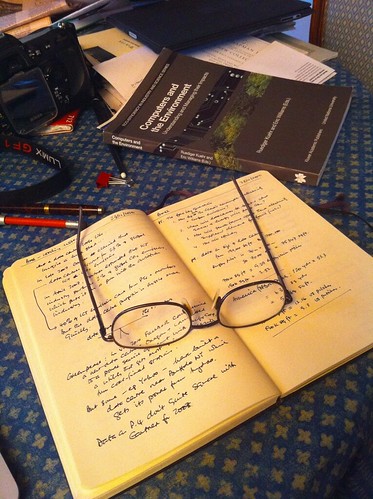On a cold November day, a reminder of high Summer.
Do not try this at home
Talk about swallowing one’s pride. Or having a gut feeling about a certain track.
3,050 photographs a minute!
Just another cat picture
Larger version here.
Is the Euro doomed?
So the Irish government has published its €15 billion ‘austerity programme’ — 10 billion in public spending cuts and 5 billion in extra taxes. Since the Irish economy is a tenth of the size of the UK’s, multiply those numbers by ten to put them into a British perspective. The standard media narrative is that the cuts are the price to be paid for being ‘rescued’ by the EU and the IMF. But you could read it another way: that Ireland is rescuing the Eurozone by stopping the bond markets going for Portugal and, after that, Spain. The strange thing is that this is, almost by definition, a doomed enterprise. There is no rational way of appeasing markets when they are in irrational moods. As Keynes observed, markets can remain irrational for longer than you can remain solvent.
The more sinister possibility, of course, is that there is a semi-rational element in the nervous instability of the bond markets. Could it be that the reason they believe the bailouts won’t work is because the currency markets have decided that there’s a sporting chance of bringing down the Euro, and that significant players have begun to bet on that, in much the same way that George Soros started betting against sterling in 1987?
Tim Wu on Net Neutrality
Terrific interview which provides a really good explanation of neutrality and how it should apply in the wireless world — and how Google is beginning to think like a Telco. Suddenly made me wonder if Google was more badly burnt by its failure to run a phone shop than we had believed. I’m currently reading Wu’s new book, which is likewise very sobering. Wonderful quote: “The only time that governments do the right thing is when the people are paying attention”.
Happy Birthday ORG!
The Open Rights Group is 5 today!
How golf ought to be
Having been brought up in Ireland, I love links (i.e. sandy, windswept, seaside) golf courses. I particularly like the way these courses can humble even golf’s most prominent billionaires whenever a major championship is held on one.
This is the view from the fifth tee at Sheringham, a lovely links course in North Norfolk.
Workspace
Sometimes, you just can’t beat an olde-worlde paper notebook. Highly portable, great screen resolution, excellent, intuitive user interface and infinite battery life.
Only problem: it’s hard to back up. On the other hand, it’ll still be readable in 200 years. Which is more than can be said for any of my digital data.
Where the computer went
This Google video provides a company-approved tour of one of its data centres (aka server farms). I’m writing about the environmental impact of cloud computing at the moment, and rediscovered it when going through the research files for my book. It provides an interesting glimpse of the heavy engineering that lies behind cloud computing.






